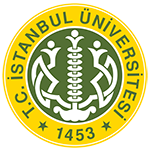
Ulaştırma ve Lojistik Kongreleri
- Türkçe
- Özet
- 2022
Limanların Bölgesel Kalkınmaya Etkisi: Türkiye Üzerine Ampirik Bir Analiz
Damla Gökmen
Arş. Gör., Bartın Üniversitesi, Bartın, Türkiye
Merve Cin
Arş. Gör., Bartın Üniversitesi, Bartın, Türkiye
Tuba Koçer
Arş. Gör., Bartın Üniversitesi, Bartın, Türkiye
Günümüzde ülkeler arasındaki entegrasyonun giderek güçlenmesi ile beraber küresel lojistik ve tedarik zincirinde limanlar ciddi bir görev üstlenmektedir. Aynı zamanda iç ve dış ticaret için önemli bir işleve sahip olan limanlar, hem yerel hem de ulusal kalkınma üzerinde olumlu etkilere sahiptir. Limanlar bulundukları kentin ve bölgenin iktisadi anlamda gelişimine önemli katkı sağlamaktadır. Bir liman bölgedeki istihdamı, işgücü gelirlerini, ticari kazançları ve vergi gelirlerini artıran bölgesel ekonomik kalkınmanın lokomotifi niteliğindedir. Anlatılanlar bağlamında bu çalışmanın amacı; limanların içinde bulunduğu kentin ekonomik gelişimine olumlu bir katkısı olup olmadığını araştırmaktır. Bu doğrultuda, liman verilerine ulaşılabilen 14 il ve bu illerin yerel limanlarına ait 2008-2019 dönemini kapsayan veriler ışığında limanlardaki faaliyetler ile limanların bulundukları illerde gerçekleşen ekonomik gelişmeler arasındaki ilişki araştırılmıştır. İllerin liman faaliyetlerini temsilen liman başkanlıklarındaki yük elleçleme miktarları; limanların bulundukları illerin ekonomik düzeyini temsilen illerdeki kişi başına düşen reel GSYH değerleri ele alınmıştır. Ayrıca ilgili literatür çerçevesinde illerin ekonomik gelişmesine katkı sağlayabileceği düşünülen nüfus, yol uzunlukları ve ihracat değişkenleri de modele eklenmiştir. İki farklı model oluşturulan çalışmanın ilk modelinde, liman faaliyetlerinin söz konusu illerin ekonomik gelişimi üzerindeki etkisi; ikinci modelde ise liman faaliyetlerinin yanı sıra ihracat, yol uzunlukları ve nüfus değişkenlerinin illerin ekonomik gelişimine etkisi incelenmiştir. Çalışmada oluşturulan modeller varsayımsal testler ile sınandıktan sonra Sabit Etkiler Tahmincisi ile dirençli standart hatalar kullanılarak tahmin edilmiştir. Birinci modelin tahmin sonucuna göre; katsayılar istatistiki olarak anlamlı olup liman faaliyetinde meydana gelen artışlar ilin ekonomik gelişimini olumlu etkilemektedir. İkinci modelde yer alan liman faaliyetleri, yol uzunlukları ve nüfus değişkeni istatistiki olarak anlamlıdır. Nüfus, yol uzunlukları ve liman faaliyetleri illerin ekonomik gelişimini pozitif etkilerken ihracat değişkeni istatistiki olarak anlamlı değildir. Sonuç olarak bulgular değerlendirildiğinde, ele alınan dönem aralığında Türkiye’de liman faaliyetlerinin ev sahibi ilin ekonomik gelişimine olumlu etkisi ampirik bulgularla kanıtlanmıştır. Literatür incelendiğinde limanların bulundukları illerin ve bölgelerin ekonomik gelişimine etkisi ampirik olarak henüz araştırılmamış olup, çalışmanın literatürdeki bu boşluğu doldurması hedeflenmektedir.
Anahtar Kelimeler: Türkiye, Panel Veri Analizi, Bölgesel Kalkınma, Liman
The Impact of Ports on Regional Development: An Empirical Analysis on Turkey
Today, as integration between countries becomes increasingly strong, ports are a serious part of the global logistics and supply chain. Ports, which also have an important function for domestic and foreign trade, have positive effects on both local and national development. The ports contribute significantly to the economic development of their city and region. A port is an engine of regional economic development, which increases employment, labor revenues, trade gains and tax revenues in the region. The purpose of this study is to investigate whether the ports positively influence the city's economic development. Accordingly, the relationship between the port activity and the economic developments in the provinces where the ports are located was investigated in the light of the data covering the 2008-2019 period of 14 provinces where port data can be accessed and the local ports of these provinces. As a measure of port activity has been considered the total port throughput and used the real GDP per capita in the provinces represent to the level of economic development of the provinces. Also included in the model population, length of highway and export variables, which are thought to contribute to the economic development of provinces within the framework of related literature. In the first model of the study, in which two different models were created, the effect of port activities on the economic development of the provinces in question; In the second model, besides port activities, were examined the effects of exports, length of highway and population variables on the economic development of the provinces. After the models created in the study were tested with diagnostic tests, they were estimated using the Fixed Effects Estimator and robust standard errors. According to the prediction result of the first model, coefficients are statistically significant, and increased port activity affects the province's economic development. The port activities, length of highway and population variables contained in the second model are statistically significant. Population, length of highway and port activities have positive effects on the economic development of provinces, while export variable is not statistically significant. Consequently, when the findings are evaluated, the positive impact of port activity in Turkey on the economic development of the host province has been proven by empirical findings. When the literature is examined, the impact of ports on the economic development of their provinces and regions has yet to be explored empirically and the study is intended to fill that gap in the literature.
Keywords: Port, Turkey, Panel Data Analysis, Regional Development


Bu çalışma, kullanan kişilere orjinal çalışmadan alıntı yaptıkları sürece, çalışmayı dağıtma, değiştirme ve üzerine çalışma hakkı tanıyan Attribution 4.0 International (CC BY 4.0) lisansı ile lisanslanmıştır.
İletişim
İstanbul Üniversitesi Ulaştırma ve Lojistik Fakültesi
İ.Ü. Avcılar Kampüsü 34320 Avcılar/İstanbul
ulk@istanbul.edu.tr
+ 90 (212) 440 00 00 - 19200


